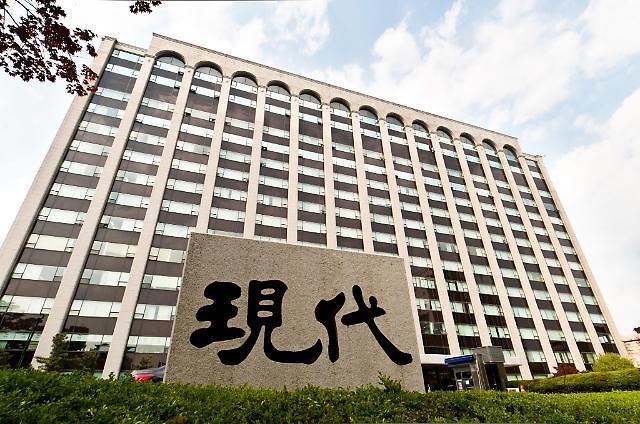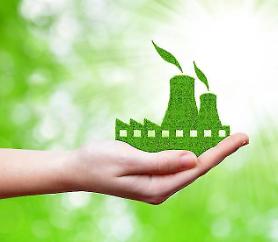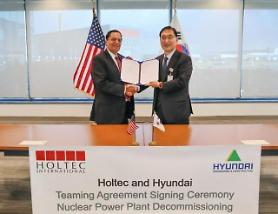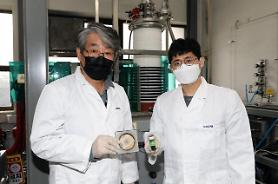
[Courtesy of Hyundai E&C]
SEOUL -- A method developed by Hyundai Engineering & Construction, a major builder affiliated with South Korea's Hyundai auto group, to remove radioactive materials at the site of dismantled nuclear facilities has won state approval for commercialization. Potassium chloride was used as cleaning water to remove cesium, which is one of the most reactive elements. The accumulation of cesium-137 in lakes has been a great concern after the 1986 Chernobyl nuclear disaster in Ukraine.
Hyundai E&C said its technology has won green certification from the Ministry of Environment, paving the way for commercialization. A pilot test using demonstration facilities has been conducted with Korea Hydro & Nuclear Power (KHNP), the state-run operator of domestic nuclear power plants, to evaluate the performance of the builder's technology.
"The acquisition of this green certification laid the foundation for leading a project to restore sites for dismantled nuclear facilities in the future," an unnamed Hyundai E&C official said in a statement on October 13. "Through continuous research and development, we will diversify our nuclear power plant business and establish a solid response system in the nuclear industry."
The dismantlement of hazardous nuclear facilities has caused concerns from environmental activists, as most radioactive materials are adsorbed on fine soil in the form of small particles on a large surface area. The smaller the size of soil particles, the higher the concentration of radioactive materials. The key is to effectively remove adsorbed pollutants by precisely selecting and cleaning soil particles.
Radioactive waste generated in the process of dismantling nuclear power plants requires a high cost of disposal. Hyundai E&C removed cesium by separating soil contaminated with radioactive substances by particle size and washing them with a potassium chloride solution.
An ion exchange reaction between potassium and cesium was used to separate cesium strongly bonded to clay soil. Cesium in washing water was selectively adsorbed and removed.
South Korea has no experience in dismantling nuclear power plants. In March 2022, Hyundai E&C joined hands with its American partner, Holtec International, to participate in the decommissioning of defunct nuclear power plants, starting with the Indian Point Energy Center in Buchanan in Westchester County.
Indian Point's three-unit nuclear power plant station shut down at the end of April 2021 after 45 years of operation. Holtec's decommissioning plans for Indian Point include moving used nuclear fuel from pools into a dry storage system, and dismantling and packaging highly activated parts from the nuclear reactors in high-capacity containers. With a teaming agreement with Holtec, which specializes in the design and manufacture of parts for nuclear reactors, Hyundai E&C would accumulate technologies.
Copyright ⓒ Aju Press All rights reserved.



